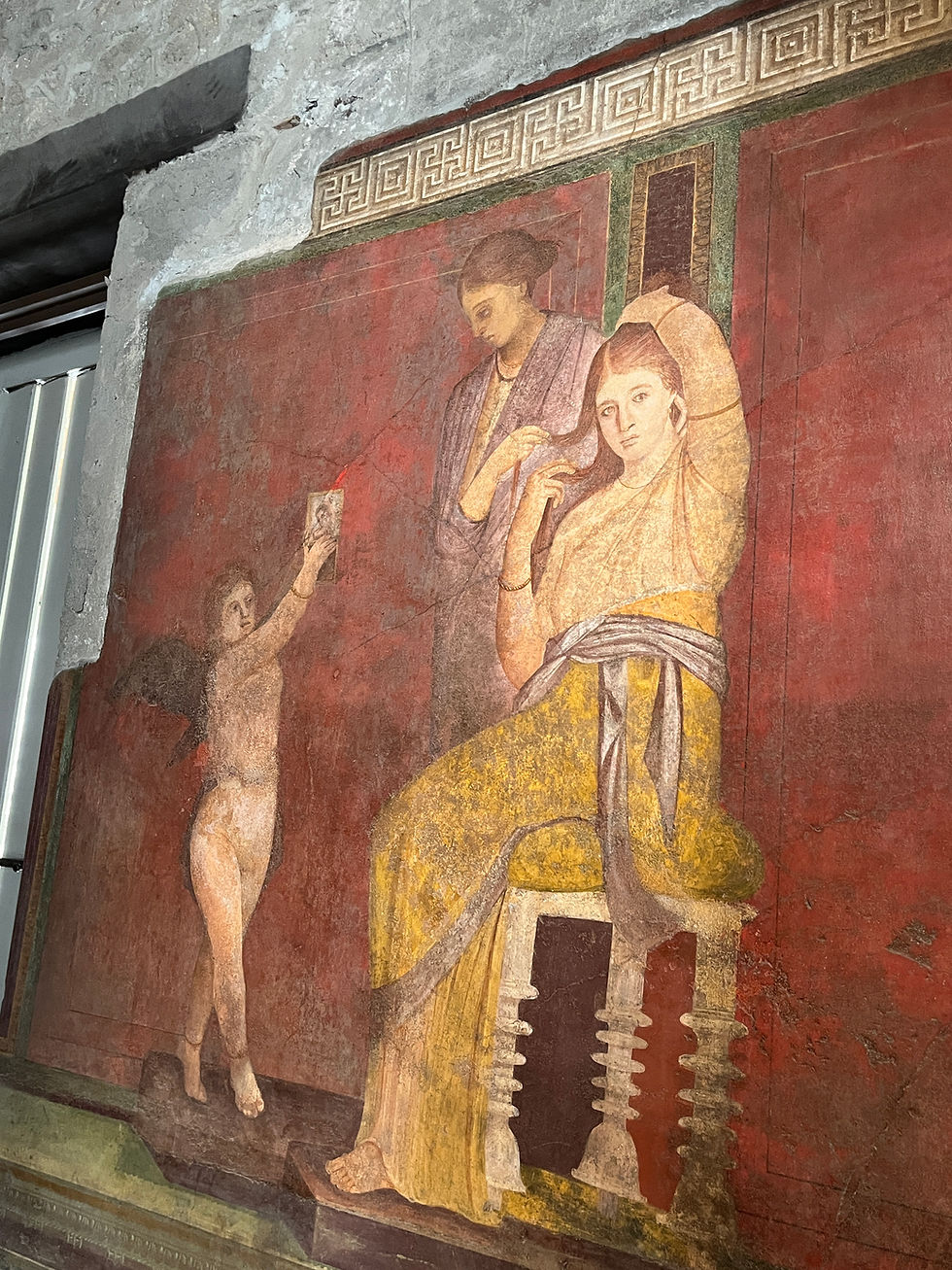"Doing Nothing" in Early Christianity
- Sandy Haney
- Apr 25, 2024
- 3 min read
Doing nothing can change your life! In fact, for early followers of Jesus in Rome and the Roman empire, "doing nothing" sometimes cost them their lives. Doing nothing had real implications, and everyone noticed Jesus-followers doing nothing. (The term "doing nothing" in this context comes from an audience member at a recent speaking engagement — thanks, Harry!)
In the first few centuries of the early church, followers of Jesus — but especially Gentile (or non-Jewish) believers — had to choose to "do nothing" all day long. When they woke up, they had to choose not to worship their household gods, such as the gods of the pantry, fields, ancestors, and hearth. As they went about their day, they had to do nothing as they walked past public altars, temples, and shrines to local and imperial gods. As they sat down for meals in popular cafes or in lavishly decorated triclinia, they had to ignore the frescoes (paintings), statues, and/or mosaics reminding them of the gods and refrain from thanking those gods for their food. As they dealt with the normal hassles of daily life — such as interacting with other people, eating and drinking, buying needed goods, engaging in business deals, and getting chores done — they had to do so without giving homage to the gods, without using language that gave credit or honor to the gods, and without performing any actions, such as incense-burning, that indicated worship of the gods. In other words, because almost every activity involved the gods, the earliest followers of Jesus had to keep choosing to do nothing. They professed devotion only to the God of Jesus, so they had to avoid worship of all other gods, which meant a constant choice to do nothing instead of something.
In Rome and elsewhere, people noticed when Jesus-followers made the choice to "do nothing." In wealthy homes, the many people involved in running the household spotted — and suspected — those who did nothing; in the more typical insulae (apartment buildings), neighbors would detect any changes in people's behavior, including changes in worship. After all, whether attending community events, doing business transactions, engaging in sexual activities, caring for children, or performing household tasks, people's activities were public. The empire was crowded, especially in Rome itself, lacking any real or total privacy. People observed and noticed what others did — or, in this case, didn't do. Thus, when the early followers of Jesus did nothing, their family, friends, and neighbors saw the changes and often responded. Doing nothing, after all, affected everyone, not just the followers of Jesus.
Because the fate of the empire rested in the hands of the gods, it was essential to keep the gods happy. Pax deorum = pax Romana: the peace of the gods equals the peace of Rome (that is, the Roman empire). When Jesus-followers did nothing, refusing to worship the gods, they put the empire at risk. If the gods were not honored correctly, they might retaliate! It mattered, then, to everyone whether their neighbor, friend, or family member worshiped the gods. If someone didn't, they put everyone's life at risk: the peace of the family, neighborhood, village, town, city, and empire depended on the peace of the gods. So when followers of Jesus did nothing to honor the gods, they became a public threat. Their refusal to worship the gods of the empire meant Jesus-followers were often labeled "atheists" and viewed as "traitors." And, sometimes, their refusal led to their death as a traitor to Rome.
Application: If you are a follower of Jesus, how does your choice to worship Jesus affect others in your life (family, community)? What "gods" do you have to not worship in your daily life (money/recognition/family/etc.)? In what ways does following Jesus put you at odds with life in your nation? Check out Acts 18:21-41 (it's not Rome, but it's still the Roman empire).








Comments